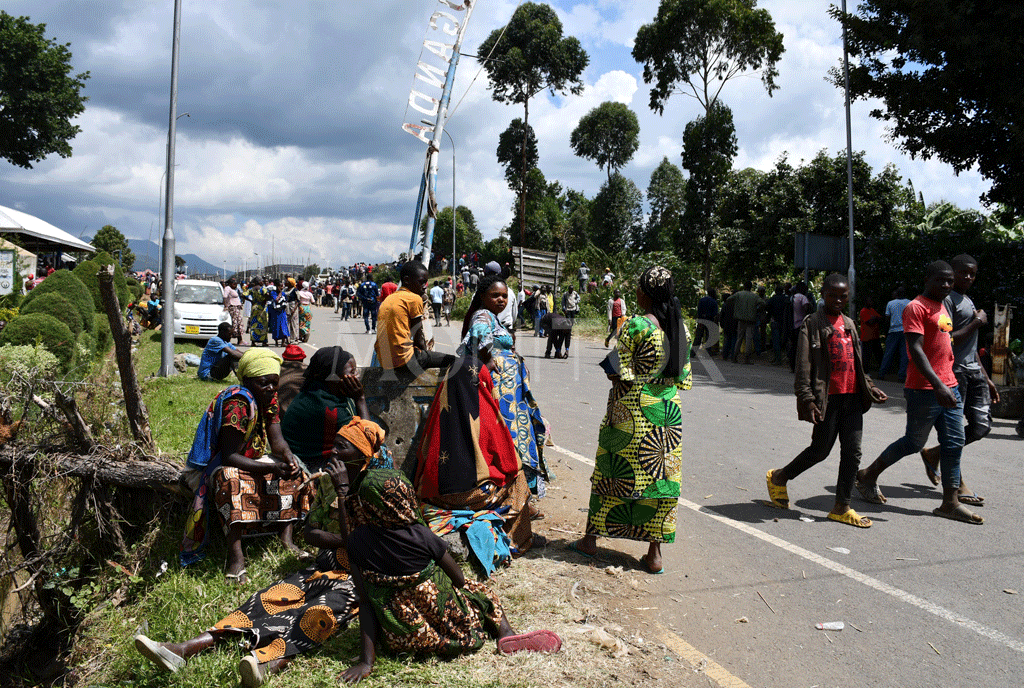Prime
Congo refugees refuse to return home

Congolese refugees camp on a shop veranda in Bunagana Town Council in Kisoro District on June 27, 2022. PHOTO | ROBERT MUHEREZA
About 10,000 Congolese refugees, who fled to Kisoro District after M23 rebels captured Bunagana border town on June 13, have refused to return to their country, saying they are not safe.
The refugees are from Rutshuru, Busanza, Jomba, Gisigari, Tongo, Bunagana, and Masisi areas, all in North Kivu.
“I cannot return home knowing that the government soldiers and the security team from East African countries will soon flash out M23 rebels from the places they captured. We relied on M23 as a strong force but in 2013, they were overpowered and left us in misery,” Mr Juma Kumwami, a refugee, said on Monday.
The M23 rebel spokesperson, Maj Willy Ngoma, could not be reached as he did not respond to our repeated calls or reply to text messages.
However, last week he said all the Congolese refugees were allowed to return because the area has been well secured.
The Kisoro Resident District Commissioner, Mr Shafiq Sekandi, on Tuesday said although there was no fighting on the Congolese side of Bunagana in the last three days, other refugees were crossing back to Uganda.
“Some of the Congolese refugees that were seen crossing back to Uganda claimed that since the administrative structures were set up by M23 rebels in their home areas, taxing residents and looting their properties has become the norm,” Mr Sekandi said.
The LC3 chairman for Bunagana Town Council, Mr Ismail Ndayambaje, said the situation has caused social problems such as increased crime rate, adding that some refugees are involved in shop break-ins and stealing crops from gardens.
He said there is also a likely outbreak of diseases due to congestion and poor sanitation.
“The health situation is worrying . Some refugees ease themselves in the nearby bushes since we do not have public pit-latrines. In case it starts raining, we are worried of disease outbreak, especially cholera and dysentery. Refugees could also spread diseases such as Covid-19, Ebola and Monkey Pox,” Mr Ndayambaje said.
Mr Ndayambaje urged the government to provide special grants to the town council to enable them manage the refugee crisis.




